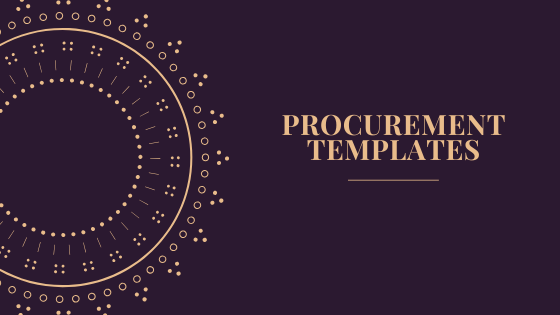This contract management guide is used as a practical resource to assist with contract management activities.
Contract management is important post contract award to systematically maximise the expected benefits of the contract and to ensure that operations are getting what they expect to receive whilst minimising risk.
Good contract management means we can achieve the following:
- Value for money is achieved
- The supplier is responsive
- The organisation understands what the contract will deliver and also understands its obligations
- Disputes are managed and minimised
- There are no surprises
- Service review meetings
- Demonstrable efficiencies
- Appropriate risk assessment
If the contract changes during the term consider the implications:
- Has the scope changed? Is this material?
- Does the change increase or decrease the cost of the contract?
- Are there any legal ramifications?
- Do CCN variations require negotiation?
Typically you might track:
- The balance between cost and VFM
- Supplier performance versus customer perception
- Delivery metrics
- Benefits realised
- Relationship
- Responsiveness
- Continuous improvement
When you implement KPI’s it’s important to not over specify just for the sake of it. Ask yourself what’s actually important to measure, to allow suppliers the opportunity to concentrate on providing a solid service.
Building a relationship
People are more likely to be responsive and go the extra mile if a good relationship is in place. There may be certain situations where the carrot or stick approach is more suitable but think about the following:
- Are you moving straight to a specific clause in a contract on page X to over come problems. If you do this too frequently it will undermine the effect when its really needed and will most likely affect the relationship;
- Is the cultural outlook of both organisations aligned, if not are the differences understood, what can you do differently to mitigate misunderstanding;
- Are suppliers responsive when discussing cost reduction exercises, can VFM be achieved in any other ways;
- Are appropriate governance and escalation steps in place;
- Have you clearly defined roles and responsibilities;
- Are strategic matters separated from daily tactical operations
- Are communications clear and do they flow both ways?
Managing risk in the contract
- Capacity, changes in demand
- reduction in demand- request for higher pricing from the supplier
- Delays
- Staff changes
- Quality issues
- Force Majeure
- Global crisis
Exit Plan
When its time to terminate or to end the contract naturally you may require an exit plan.
- Check all paperwork is in place
- Check if any outstanding payments are to be made
- Are all of the goods/ services delivered satisfactorily
- Are guarantees or warranties in place as required
- Are there any ongoing contractual obligations
- Are there material reconciliations that need to be made
- Is support being provided to onboard a new supplier
- Is there a retention of records policy in place
- Is the supplier providing the appropriate assistance to bring things to an appropriate end
Skills framework
| Basic | Seasoned | Expert |
| Business Case development and ability to read and understand the requirements | Input and collaboration | Input’s shapes and development of business case to meet organisation objectives |
| Input into contract management process | Develops contract management deliverables and technical framework. Work with stakeholders | Leads on implementing the contract management framework. Can recognise gaps, risk and challenges and the contractual consequences |
| Run a lessons learned exercise | Run a lessons learned exercise and use this information to incorporate into procurement and provide feedback for improvements | Identifies and shares lessons learned exercises across the business to develop organisation best practice for all contracts and projects. Use the information to help shape procurement projects and policy. |
| Use data to support the contract management process | Use data and work with the stakeholders to design and review KPI’S as part of the contract management process | Uses expertise to design KPI’s to future manage risk before they become an issue. Manage KPI’s to maximise the contract value and benefits realisation |
| Seeks to understand the market landscape | Proactively uses market insight and awareness to make commercial decisions | Takes on broader PESTLE factors and market conditions to make informed commercial decisions |
| Able to act act efficiently and within the governance structures | Develops and contributes to governance structures | Advises and sits on project governance groups |
| Reviews contracts and has a basic understanding on how to mark up | Prepare a mark up a contract including ability to assess contractual risk | Fully comfortable with reviewing contracts and negotiating with legal or other commercial counterparts |
| Identifies and benchmark savings | Uses benchmark information to measure both performance and savings targets | Provide devolved benchmarking advice for the business to self service. Provide appropriate training |
| Commercial Strategy | Contract Approach | Contract Lifecycle |
| Develop strategy | Ensure shared understanding | Plan for uncertainties |
| Commercial Capability | Understand risks | Work toward business as usual requirements |
| Tailor capability to risks and opportunities | Design performance measures that work | Transition and Termination |
| Clarify commercial and operational balance | Contract Management | Think about contract end up front |
| Maintain organisational capability | Manage your own obligations | Allow time to consider potential end of contract |
| Maintain Management & Sourcing | Know what your suppliers are doing | |
| Be an attentive client | Show what you care about | |
| Be an intelligent client | Understand suppliers motivation | |
| Properly evaluate bids | ||
| Keep up competitive tension |
Check out other resources on contract management
